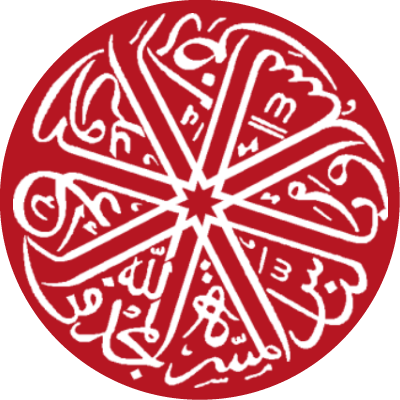كتاب تهافت المعتزلة
Editions 1
Relationships with other works 1
منهج الزمخشري في تفسير القرآن وبيان إعجازه
Editions 1
Relationships with other works 1
The questions of the superiority of angels and prophets betwen az-Zamakhsharī and al-Bayḍāwī
Editions 1
Relationships with other works 1
البلاغة القرآنية في تفسير الزمخشري وأثرها في الدراسات البلاغية
Editions 1
Relationships with other works 1
ظاهرة "الالتفات" في كشاف الزمخشري
Editions 1
Relationships with other works 1
Muḥkam and mutashābih : an analytical study of al-Ṭabarī's and al-Zamakhsharī's interpretations of Q.3:7
Editions 1
Relationships with other works 1
Departure from communicative norms in the Qurʾan : insights from al-Jurjānī and al-Zamakhsharī
Editions 1
Relationships with other works 2
A traditional Muʿtazilite Qurʾān commentary : the Kashshāf of Jār Allāh al-Zamakhsharī (d. 538 / 1144)
Translations 1
Relationships with other works 1
Le prime traduzioni del Corano in Italia
Editions 1
Relationships with other works 2
مصطلحات "التصوير" و"التمثيل" و"التخييل" عند الزمخشري في "الكشاف"
Editions 1
Relationships with other works 1
أثر العقيدة في مناهج المفسرين (قراءة في ردود أهل السنة على الزمخشري)
Editions 1
Relationships with other works 1
The gloss as intellectual history
Editions 1
Relationships with other works 4
You can't tell a book by its author: a study of Muʿtazilite theology in al-Zamakhsharī's (d. 538/1144) Kashshāf
This article examines the Kashshāf, the Quran commentary of the Muʿtazilite al-Zamakhsharī (d. 538/1144). This involves: (1) the continuous reading of the commentary on two sūras; (2) the study of al-Zamakhsharī's commentary in the Kashshāf on Quranic passages used by him or his teacher Ibn al-Malāḥimī (d. 536/1141) in their theological treatises; and (3) an analysis of a report claiming that al-Zamakhsharī had begun his commentary with the blatantly Muʿtazilite statement: “Praise be to God who created the Quran”. The conclusion is that the results of the study of the commentary on the two sūras reflect the overall theological content of the Kashshāf and that to consider the Kashshāf to be a Muʿtazilite Quran commentary amounts more to looking at the theological school of its author and to accepting medieval hearsay than it does to drawing conclusions based on a detailed examination of the relevant sources.
Editions 1
Relationships with other works 1
The debate on the nature of the science of Tafsīr in the tradition of Sharḥs and Ḥāshiyas on al-Kashshāf
The sharhs and hashiyahs written on al-Zamakhshari’s (d. 538/1144) al-Kashshāf formed an effective writing tradition and are connected to each other in terms of influence, quotation, rejection, objection, and answering. However, the commentators often provided explanations of the information related in the previous works without citing any specific author. Therefore, these relations can only become apparent via chronological and comparative analyses. This study examines these texts, which are mostly in manuscript form, both chronologically and comparatively in the context of the nature of the science of tafsīr. Al-Zamakhsharī explained his view on the nature of tafsīr in the introduction to his al-Kashshāf. This article, which presents a chronological study of the subsequent works in which these explanations were annotated, details how later scholars dealt with this subject. The selected section shows that the sharhs and hashiyahs do not reflect the widespread belief that such works were merely repetitions of each other, but that they were subjected to intense debates that matured over time. The following points are noted: There is no consensus on the definition of tafsīr, the critical approach is constantly in the foreground, and any serious study of the sharhs and hashiyahs on al-Kashshāf is only possible when one consults works of historical depth.
Editions 1
Relationships with other works 1
